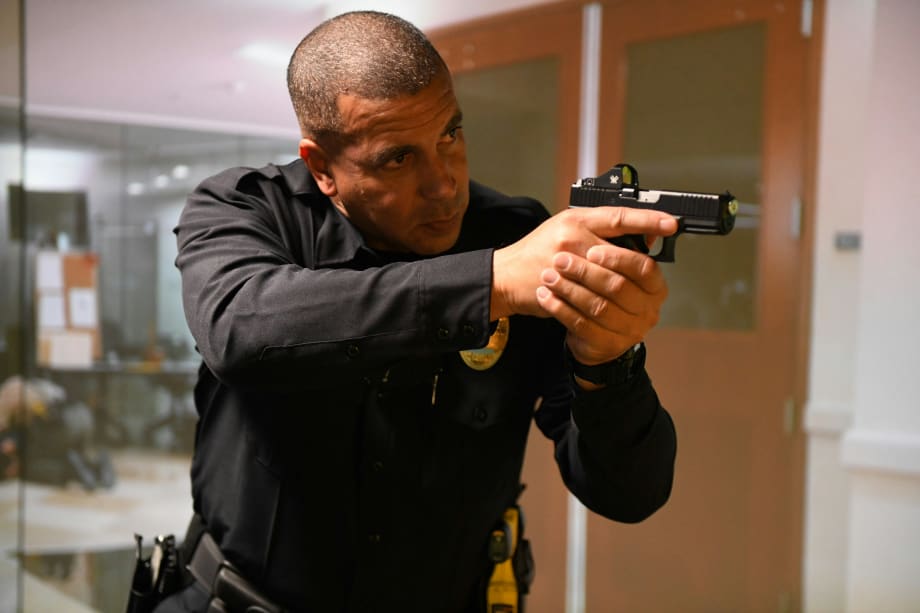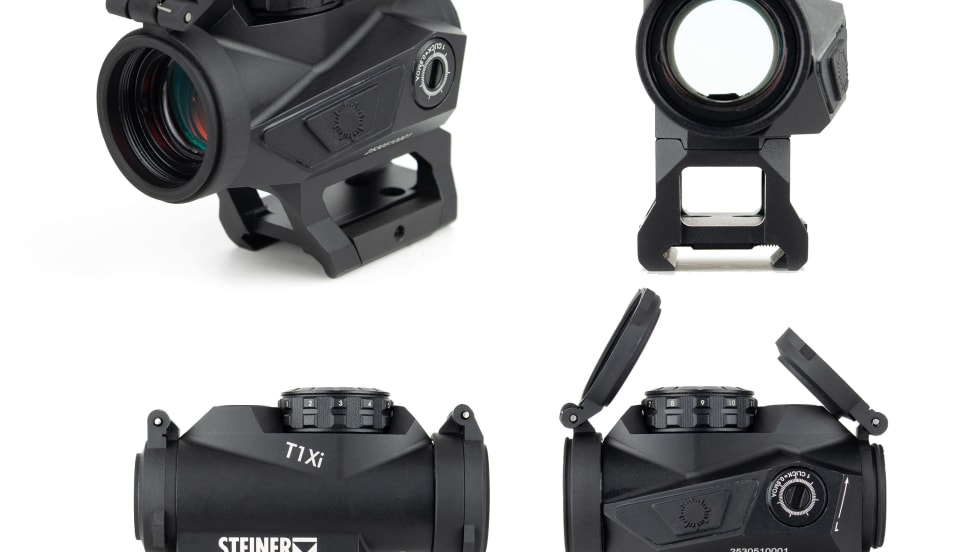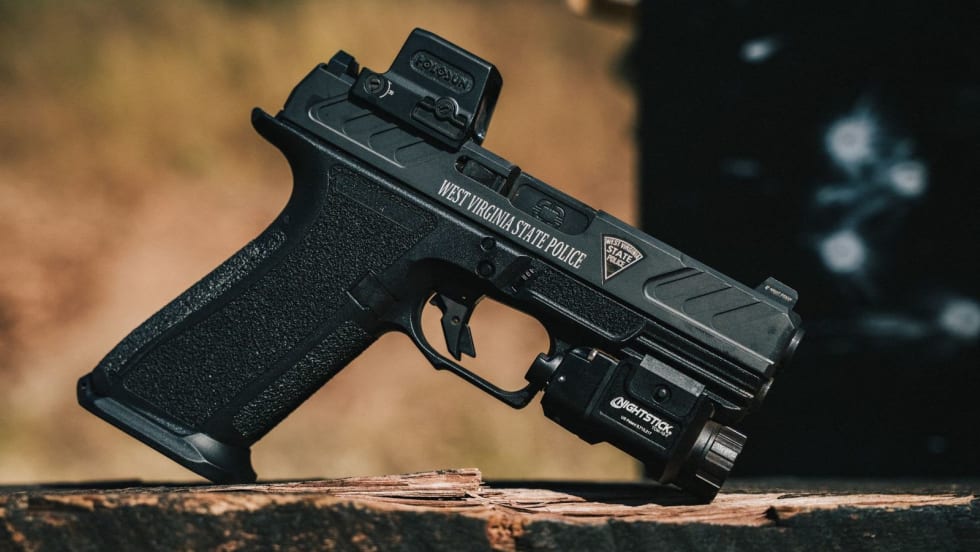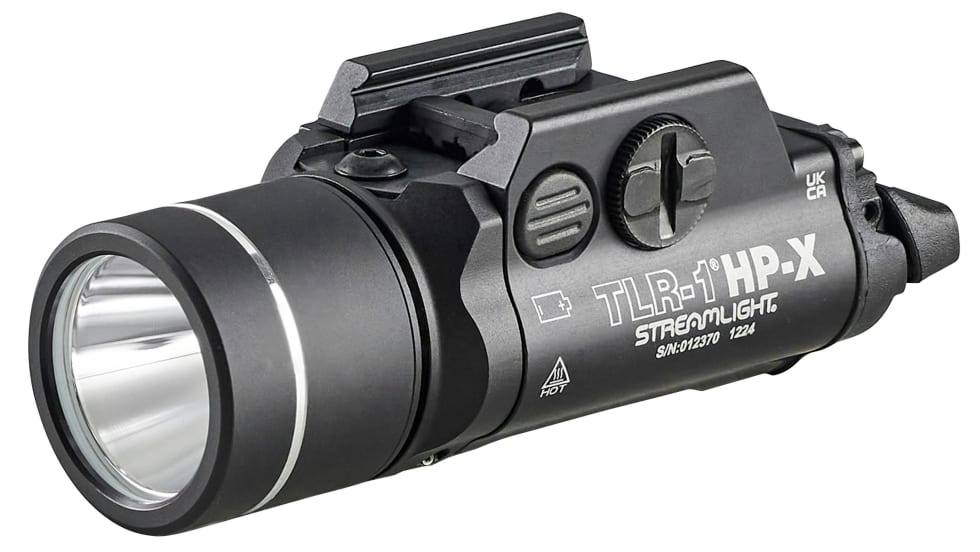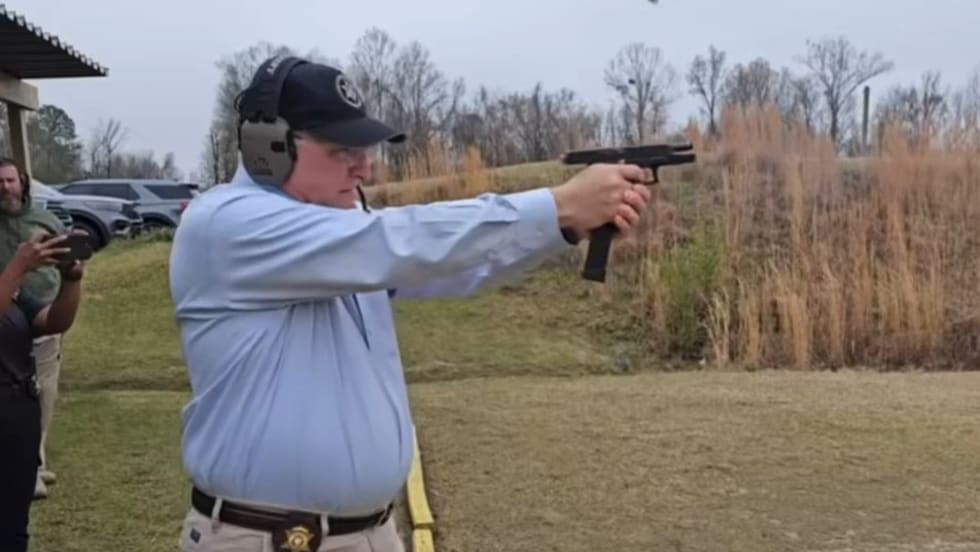Before we play judge, jury, and executioner by hanging the millstone of “negligent discharge” around someone’s neck, we owe it to ourselves and the firearms community at large to not be cavalier in our use of language by perpetuating the use of irresponsible terms that carry with them serious legal ramifications.
Many who have served a lot of time in the military and or law enforcement environments and who do firearms instructing will develop a resistance to what some might refer to as intellectual dishonesty. One of ours is people who regularly use the term “negligent discharge” without a full understanding of its implications.
The term “negligent discharge” often shortened to the acronym “‘ND” seems to have slowly migrated into police and civilian gun instructing circles over the years via the military. Many who leave the military, pursue careers in law enforcement while others get into the realm of tactical and firearms instruction in the civilian world. It’s natural that certain concepts, ideas, and training philosophies good or bad will be carried from one culture into another. This is what seems to have happened in large part with the term “negligent discharge.”
Legal Implications
So, what exactly is a negligent discharge? Here’s the gist of what you’re likely to hear from people of varying backgrounds; “If your gun fired when you didn’t want it to and you had your finger on the trigger, then you were negligent.”
Sounds perfectly logical, and most, especially those new to the gun culture will readily accept the premise without a second thought. Much like police recruits in an academy training environment, beginners in the civilian world will eagerly agree with almost every word spoken by an instructor, because if they are teaching, they must be experts. Bad ideas continually repeated come to be accepted as fact, not only by other instructors but especially by novices hungry for information who don’t know any better.
Are there instances where firearms can be discharged in a negligent manner? Absolutely. However, determinations of this type are best left to the legal confines of a courtroom, not by instructors on a gun range, or some police managers who, without thinking things through, mis-label an event in quick attempt to place blame.
Types Of Discharges
The criminal statutes in Arizona—the state where we had our police careers—reference four culpable mental states: intentionally, knowingly, recklessly, and with criminal negligence. In the legal realm, these words are coupled to conduct that could result in criminal prosecution and civil litigation. Without a proper knowledge base, gun instructors will routinely characterize what was an unintentional discharge as a negligent discharge simply because they are parroting what they learned either from the military or from other well-meaning yet misinformed instructors.
When we went through our AZPOST law enforcement firearms instructor course, the curriculum classified firearms discharges by three distinct types:
1. The accidental discharge occurs when a firearm discharges absent human interaction with the trigger. Examples would be older firearms that aren’t drop safe, or situations where a foreign object gets pushed into the trigger guard resulting in activation of the trigger mechanism.
2. The intentional discharge is defined as intentionally doing everything needed to fire the gun. Examples would be range practice or real-world situations where a person used their gun in self defense and made a conscious decision to shoot.
3. The unintentional discharge of which there are two types. The unintentional voluntary is defined as doing everything needed to make the gun go off simply believing it to be unloaded. Examples of this would be dry-fire practice and or gun cleaning where, after the cleaning or dry practice session, the gun is loaded followed by a distraction and/or interruption whereupon the operator comes back to the gun, picks it up and takes one more practice trigger press believing it to still be unloaded. And the unintentional involuntary, which is caused by three primary means with the common variable of improper trigger finger placement:
* Startle response is when the operator’s finger is on the trigger or in very close proximity followed by an external stimulus, usually a loud noise causing an involuntary clench of the firing hand which can result in an unintended press of the trigger.
* Sympathetic response—also referred to as a contralateral contraction and/or activation—occurs when the operator’s finger is on the trigger or in very close proximity followed by utilizing the support hand to grab, move, push, or pull something which results in contraction and/or involuntary sympathetic squeeze of the primary hand, which in turn can result in an unintentional discharge. This also occurs with jumping and kicking movements.
* Balance disruption occurs when the operator’s finger is on the trigger or in very close proximity followed by any form of balance disruption such as a forward or backward stumble or having another person or object fall into you unexpectedly. Resultant balance disruption can trigger an involuntary clenching of the primary hand resulting in an unintentional discharge.
Based on the above, we can clearly see that firearms discharges routinely referred to as negligent discharges, fall into the category of either an unintentional voluntary or an unintentional involuntary discharge. By definition, if someone’s finger was on the trigger, the accidental discharge can be ruled out. The unintentional discharge could also be ruled out if the shooter knowingly points a loaded firearm and pulls the trigger with deliberate intent of discharging the firearm.
Language Has Consequences
The AZPOST law enforcement firearms instructor curriculum does not teach “negligent discharge” as one of the three methods of discharging a firearm. The likely explanation is that the subject matter experts, firearms instructors, and attorneys who sit on the board that set policies and standards for law enforcement agencies statewide and who collaborate on the construction of lesson plans believe that determining negligence is best left to the legal system.
The policy manual from the agency we recently retired from is over 1,300 pages long with 22 pages specifically dedicated to firearms policies. The term “negligent discharge” is not mentioned once. Both of us sat on the firearms committee of our respective agencies whose purpose is to evaluate the implementation of new equipment and create the relevant new policies as well as to oversee revisions to existing policies. They are painstakingly scrutinized and might go through several rewrites to include vetting by the department’s legal unit before being published in final form. Large police agencies realize there are serious ramifications any time the term “negligence” is incorporated into policy as it incurs the risk of criminal and civil liability.
The most recent version of instructor materials currently being issued to those who become NRA basic pistol instructors does not mention the term “negligent discharge” anywhere that we could find. If a concept or term such as “negligent discharge” was of importance, surely a nationally renowned training organization like the NRA would dedicate a portion of their training materials to address it, especially to their newest instructors.
If the NRA and many law enforcement governing entities as well as police agencies don’t use or otherwise advocate the use of the term “negligent discharge,” that leaves the military. The military likes to take care of things expeditiously. A soldier in the rear area of a combat zone stands in a chow line and puts the muzzle of his weapon in a clearing barrel to clear it before entering the dining facility, presses the trigger and KA-BOOM! Well, the soldier failed to properly clear the weapon, pulled the trigger, it went off, so therefore they were negligent. Sign here, press hard, three copies. Guilt has been immediately assigned, discipline will be swift, and a report of the incident will quickly be crafted, wrapped up in a neat tidy package, and forwarded up the chain. The term negligent discharge then becomes an ingrained part of the military culture and organizational lexicon and begins to be perpetuated by well-meaning persons who have simply never thought it out.
In the police world, if an officer fails to properly clear their pistol while pointing into a bullet trap and fires a live round, or unintentionally fires a round while their firearm is pointed downrange, they aren’t accused of negligence. For starters, it’s hard to accuse someone of negligence when the firearm was either pointed downrange or into a device designed to safely capture the projectile. In the bullet trap scenario, our former agencies would issue minor discipline for failing to follow proper safety protocols and it would be written up as an unintentional discharge.
Despite all this, we see well-intentioned instructors who continue to perpetuate the concept of the “negligent discharge” when teaching others or writing articles.
Before we play judge, jury, and executioner by hanging the millstone of “negligent discharge” around someone’s neck, we owe it to ourselves and the firearms community at large to not be cavalier in our use of language by perpetuating the use of irresponsible terms that carry with them serious legal ramifications. Let’s at least wait till we’re in a courtroom to let the legal system determine whether someone’s actions are or aren’t negligent.
Ken Crane retired after 30 years of service with the Phoenix Police Department and was president of the Phoenix Law Enforcement Association. He also served on the Board Directors of the National Association of Police Organizations (NAPO). Post-retirement he instructs civilians in the safe operation of firearms and operates his own use of force consulting company, Decision Point Analysis LLC.
Lon Bartel is the director of Training and Curriculum for VirTra, a leading-edge simulation and training company. He served 20 years as a law enforcement trainer and is internationally certified as an instructor with the International Association of Directors of Law Enforcement Standards and Training, where he has won innovation awards. Bartel has presented at multiple conferences on human performance. These presentations were at the International Law Enforcement Educators and Trainers Association conference (2017, 2018, 2019, 2020), The International Law Enforcement Training Network, Law Enforcement Education Program (2020 and 2022), and Force Science Annual Conference (2020).


